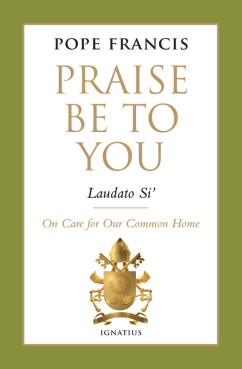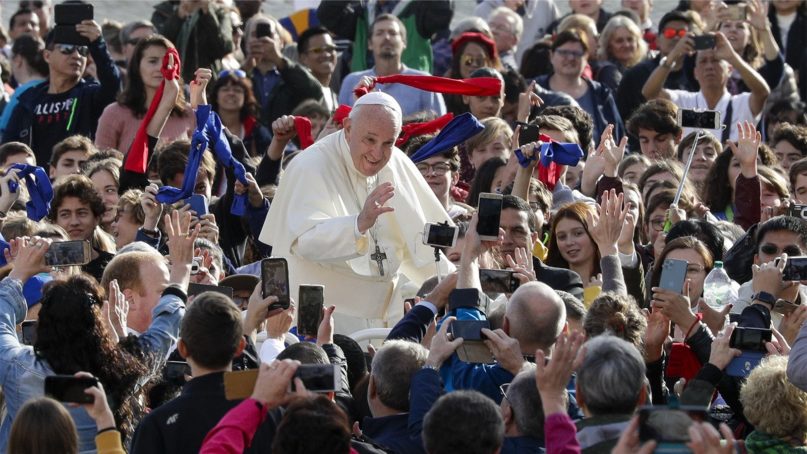VATICAN CITY (RNS) — Only a few days after the United States officially gave notice of its intention to withdraw from the Paris climate agreement, Pope Francis took the opportunity to praise a gathering of environmental regulators meeting in Rome this week.
In a statement to participants of the 31st meeting for the Montreal Protocol on Substances that Deplete the Ozone Layer, the pope praised the international community’s three decades of international cooperation to combat climate change and reinforced the Vatican state’s commitment to safeguarding the environment.
“We are in fact facing a ‘cultural’ challenge either for or against the common good,” Francis wrote in a message read by the Vatican secretary of state, Cardinal Pietro Parolin, at the Food and Agriculture Organization headquarters on Thursday (Nov. 7).
“Here, an honest and fruitful dialogue truly capable of listening to different needs and free of special interests, together with a spirit of solidarity and creativity, are essential for the building of the present and future of our planet,” the message read.
The Montreal Protocol on Substances that Deplete the Ozone Layer, the first international treaty to be universally ratified at the U.N., was signed in 1987 and became effective two years later. It aims to protect the ozone layer by lowering the emission of substances that deplete it and risk raising the temperature of the planet to uninhabitable levels.
Successful not only in terms of its implementation, but in the speed and efficiency with which it was adopted, the treaty was once hailed by former U.N. Secretary-General Kofi Annan as “perhaps the single most successful international agreement to date.”
Pope Francis described the Montreal Protocol as “a model of international cooperation.”
In his message, released days after the United States sent an official letter to the U.N. on Monday announcing its intention of withdrawing from the Paris climate agreement in November 2020, Francis said there were three lessons to be drawn from the three decades of cooperation under the Montreal pact.
“First, to give real life to dialogue for the sake of shared responsibility for the care of our common home, one in which no one ‘absolutizes’ his or her own point of view. Then, to make technological solutions part of a broader vision that takes into consideration the variety of existing relationships.

In the first papal letter dedicated to the environment, “Laudato Si’,” Pope Francis uses a tone of prophetic urgency to describe climate change as “a global problem with grave implications” and one that requires a “bold cultural revolution” in mankind’s thinking. Photo courtesy of Carmel Communications
“Finally, to structure our decisions on the basis of the central concept of what we can call ‘integral ecology,’ grounded in the realization that ‘everything is connected,’” the pope said.
Francis made his debut as a “green pope” with his 2015 encyclical, “Laudato Si’,” which promoted a healthy and sustainable relationship between humans and the environment. A key point of that document was the concept of “integral ecology” or “integral development,” which he defined in his message on Thursday as “a broad and fruitful cooperation among different sectors,” including scientists, politicians, economists and civil society.
The pope warned those who think technology will provide all the necessary solutions that faith in scientific and engineering advances sometimes misses the “mysterious network of relations” that cause the solution to one thing to cause a problem elsewhere.
He cited the Kigali Amendment, which had to be added to the Montreal Protocol because hydrofluorocarbons, chemical compounds invented to replace banned chlorofluorocarbons and hydrochlorofluorocarbons, turned out to contribute to the warming of the atmosphere.
The Kigali Amendment “represents a sort of bridge between the ozone problem and the phenomenon of global warming,” Francis said, which points to his third point about how “everything is connected.”
Without mentioning the Paris accords or the United States by name, the pope noted, “I express my prayerful hope that the international ozone regime, as well as other praiseworthy initiatives of the global community on care for our common home, can continue on this complex, challenging, but always stimulating path.”





